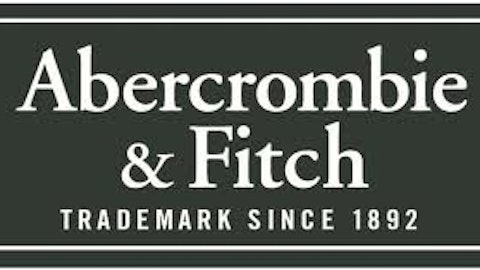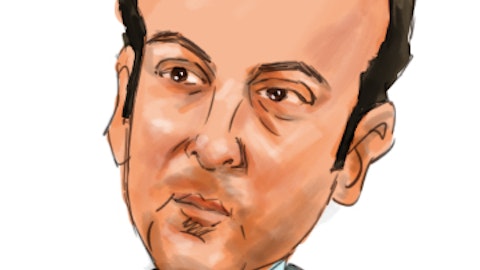Sears Holdings Corporation (NASDAQ:SHLD) saw its stock climb over 13% last week, and over 6% on Friday, October 26th alone. The company is making solid strides to continue its turnaround efforts and the board has approved the partial spinoff of Sears Canada Inc. Sears Holdings owns around 95.5% of Sears Canada, and plans to sell off around 44.5%. This will raise further cash for the company, amidst possible liquidity concerns. Sears also recently completed the spinoff of Sears Hometown and Outlet Stores.
Sears has decided to reduce its exposure to Canada as Target Corporation (NYSE:TGT) plans to open stores in the country in 2013. Despite continued competition from online retailers and other major retail chains such as Wal-Mart, S&P has a strong buy rating on the company with an $78 price target. Target recently agreed to sell its consumer credit card portfolio to TD Bank Group. Target plans on paying down debt and repurchasing shares with the proceeds. Without the overhang of its credit card business, Target should see multiple expansion and now trade more in line with its peers.
J.C. Penney Company, Inc. (NYSE:JCP), the struggling apparel company, also in turnaround mode, is expected to have a dismal 2012. The company saw 2Q results come in much greater than expected on the back of a 22% decline in same store sales. Ron Johnson, the company’s CEO, indicated the rest of 2012 would be much like the first half, very bad. However, even in Bill Ackman’s latest appearance he continued to sing Penney’s praises; Ackman had 12% of his firm’s 2Q 13F invested in Penney.
Macy’s, Inc. (NYSE:M), by catering to a higher end clientele, has managed to perform relatively well, up 20% year to date. The company should continue to see solid appreciation going forward, with growth from its higher-income customer base at Bloomingdale’s. As well, the company is looking to head off online retailers at the pass, by increasing investment in its online strategy. Macy’s saw a boost in same store sales of 1% due to positive online sales.
Best Buy Co., Inc. (NYSE:BBY), who is struggling to stop the bleeding, is down over 10% during the last week after posting lower than expected earnings. Best Buy now trades in limbo, somewhere between a turnaround stock and a dying breed. The company has the ability to mount a comeback, and already has initiatives to close larger stores and offer mobile-focused stores, while also investing in China. However, Best Buy still faces pressures from online retailers, namely Amazon; see Target and Best Buy’s latest attack against Amazon. We remain cautiously optimistic that the company can begin executing its plan sooner rather than later. Yet, we do take refuge in the number of insider buys and the number of top funds invested in the company. Ray Dalio, Steven Cohen and Ken Griffin all owned over 1.2 million shares and upped their stakes in 2Q by at least 60% from 1Q.
Despite the weak same store sales that Sears saw in its most recent quarter, the company managed to see positive contributions from its apparel segment. This is in part due to Sears ability to capture market share from the struggling J.C. Penney, especially given both are generally neighbors in most shopping malls.
Sears has long been a top pick of Eddie Lampert—see Lampert’s 3Q performance. Lampert had over 40% of his firm’s 2Q 13F invested in Sears. The company’s high quality brands including Kenmore, Craftsman and Lands’ End should help it to mitigate some of its competitive pressures.
At a time when other specialty retailers, such as Best Buy, are being beaten down on consumer preference change, we believe that Sears is well ahead of other retailers in terms of adaptation. While only Macy’s and Target have calculable P/E ratios, as the other companies mentioned here are taking losses, good values can be found here. We remain cautious about J.C. Penney’s strategy, albeit robust, as we fear the company might be aiming too high. We believe that Macy’s and Target are fairly valued, but would consider Sears a potential buy as it appears to be executing the best of the turnaround stories. However, Best Buy still has founder Howard Schulze’s interest to take the company private for $24-$26 as a possible saving grace for the stock, and pays a 4.2% dividend for the wait.






